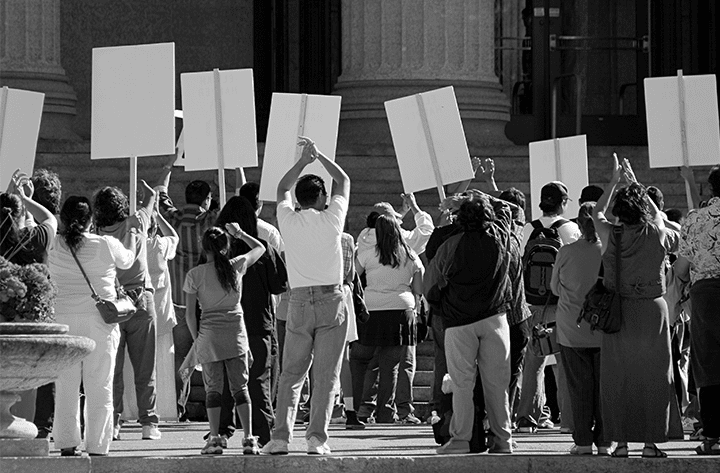Education
Munger, Tolles & Olson frequently represents higher education institutions in a variety of litigation and investigatory matters. Our attorneys understand the challenges faced by both public and private colleges and universities, in both the traditional and for-profit sectors.
We have guided educational institutions through issues ranging from constitutional claims concerning admission policies to privacy issues resulting from a security breach to False Claims Act cases and investigations.
The list below illustrates the wide range of substantive areas of law and types of matters in which we have represented higher education clients.
Internal and Government Investigations, False Claims Act Litigation and Criminal Defense
Munger Tolles has counseled higher education clients in internal and government investigations, criminal prosecutions and civil matters involving the False Claims Act. These matters include:
- Defending a for-profit institution against multiple whistleblower lawsuits and government investigations under the False Claims Act related to the school’s compliance with various Higher Education Act requirements.
- Representing a state university in an internal investigation raising issues related to a faculty start-up company, licensing of university intellectual property, the use of federal grant funds, and conflicts of interest.
- Advising a university in a Cal-OSHA investigation into a workplace accident, in which our attorneys successfully negotiated a settlement with Cal-OSHA and avoided the most serious penalties.
- Defending against a felony prosecution for a lab accident that resulted in a student’s death. Our attorneys successfully negotiated a prosecution enforcement agreement and obtained a dismissal with prejudice.
Student Sexual Misconduct, Due Process and Title IX
Our firm has significant experience representing universities in litigation arising out of university disciplinary proceedings involving student sexual misconduct. We also provide pre-litigation advice for clients who must navigate between their Title IX, VAWA, and Clery Act obligations on one hand and due process on the other. We have defended state universities:
- Against numerous due process claims raised in administrative writ proceedings by students accused of sexual assault or other sexual misconduct and disciplined through the university’s student conduct hearing procedure.
- Against Respondent students’ ex parte applications for a temporary restraining order seeking reinstatement. We have successfully opposed ex parte applications challenging interim suspensions, suspensions, and dismissals.
- Against due process claims regarding the university’s Title IX investigation of allegations of student sexual misconduct.
- In federal court actions brought by university students alleging that the university responded to reports of sexual harassment by faculty or other students with deliberate indifference in violation of Title IX. We have succeeded in having some claims dismissed at the pleadings stage and currently are engaged in discovery.
First Amendment, Due Process and Other Constitutional Claims
Our firm also has represented state universities and university systems in numerous cases raising constitutional issues. For example, we defended a state university in:
- A federal lawsuit challenging the university’s adoption and application of high school curriculum requirements for eligibility for admission to the university, on numerous constitutional grounds allegedly arising from discrimination on the basis of religion. The university won summary judgment in the trial court, which was affirmed by the Court of Appeals for the Ninth Circuit.
- A federal class action alleging that, following the passage of California’s Proposition 209, the university’s admissions policies resulted in disparate impact discrimination in violation of the Constitution and regulations promulgated under Title VI of the Civil Rights Act of 1964. The case settled on terms favorable to the university, without requiring any change to the university’s admissions policies.
- A federal court action alleging that the university failed to protect the plaintiff Jewish students from an alleged anti-Israel and anti-Semitic campus environment and from harassment and violence, in violation of the Constitution and Title VI. The case was dismissed at the pleading stage, in part on the basis that the actions the plaintiffs claimed the university should have taken would have violated the First Amendment rights of other students.
- A federal lawsuit challenging the constitutionality of California’s Proposition 209, as applied to the university’s admissions policies. The case was dismissed at the pleading stage, and the dismissal was upheld by the Court of Appeals for the Ninth Circuit.
- As amicus curiae in the United States Supreme Court in a federal court lawsuit challenging the constitutionality of Michigan’s Proposal 2, which prohibited the use of race as a factor in university admissions decisions.
- A lawsuit challenging the university’s provision of financial aid to certain undocumented immigrants who graduate from state high schools.
- A lawsuit by a student at the university’s law school alleging that the university breached a contract to admit him to a joint degree program in the medical and law schools and that the admissions policies of the university’s medical school violate a prohibition against the use of race in admissions. The lawsuit was dismissed with prejudice by the trial court.
- Against due process claims brought by a student accused of sexual assault and disciplined through the university’s student conduct hearing procedure. The university successfully opposed the student’s application for a temporary restraining order seeking reinstatement and the lawsuit was dismissed with prejudice by the trial court.
- We also represented, at the request of a university, undocumented immigrant and citizen students and student organizations at a state university as amici curiae defending the legality of a state law exempting certain persons, including undocumented immigrants who graduate from state high schools, from paying nonresident tuition at state universities and colleges without regard to whether they reside in California. The state Supreme Court upheld the law.
Privacy
Our attorneys have also advocated on behalf of higher education institutions in matters raising privacy issues. For example, we represented a state university in:
- A class action alleging that the university had violated the privacy rights of the plaintiffs as a result of a computer hacker’s gaining unauthorized access to certain information about patients at the university’s medical center. Following dismissal of most of the plaintiffs’ monetary claims, the action was settled for a modest payment to the class and agreement to make changes that were almost all planned by the university without regard to the lawsuit.
- A class action alleging that the university violated the privacy rights of the plaintiffs as a result of the theft of a computer hard drive containing medical information from the home of a university-affiliated physician. The California Court of Appeal ordered that the case be dismissed because there was no allegation that the confidentiality of the plaintiffs’ medical information had in fact been breached. We currently represent the university in a similar class action arising from theft of a computer from a university medical center.
- A state court lawsuit alleging that an assistant to a physician affiliated with the university’s medical center improperly accessed medical information about the plaintiff and disclosed it to unauthorized persons. The complaint alleges that the university was negligent in providing the physician a password that allowed him access to information about patients other than his own.
Defamation
We successfully defended a state university in a state court action alleging that the university and its library had defamed the plaintiffs by publishing and placing in the library an oral history of a prominent Jewish group in the San Francisco Bay Area. The case was dismissed based on the statute of limitations and the university was awarded its attorneys’ fees.
Cultural Patrimony
Munger Tolles represents a state university in a lawsuit filed by three University of California anthropology professors alleging that the university violated the federal Native American Grave Preservation and Repatriation Act (NAGPRA), the First Amendment and the university’s public trust obligation by deciding to repatriate skeletal remains found on university property to a Native American tribe. The lawsuit was dismissed by the trial court on the ground that the tribe was an indispensable party and could not be joined as a defendant because it has tribal sovereign immunity. The Court of Appeals for the Ninth Circuit affirmed.
Academic-Research Privilege
We helped a professor at a state university successfully oppose a subpoena for production of evidence served on him by the state attorney general on the basis of the academic-research privilege.


